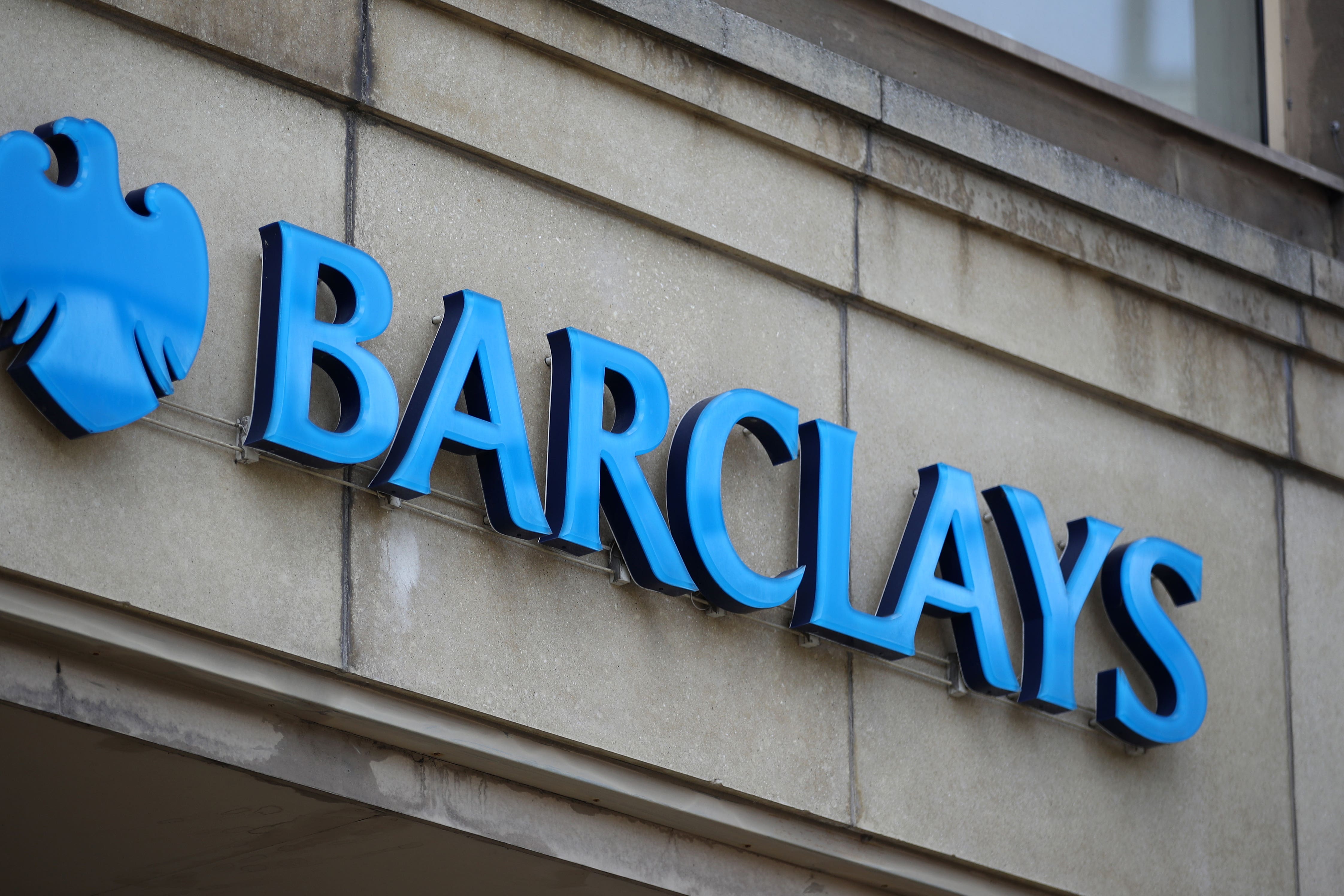Barclays profit surges ahead of expectations on interest rate boost
The bank said its pre-tax profit of £2.6 billion was the highest quarterly profit on record since 2011, when accounting standards changed.

Your support helps us to tell the story
From reproductive rights to climate change to Big Tech, The Independent is on the ground when the story is developing. Whether it's investigating the financials of Elon Musk's pro-Trump PAC or producing our latest documentary, 'The A Word', which shines a light on the American women fighting for reproductive rights, we know how important it is to parse out the facts from the messaging.
At such a critical moment in US history, we need reporters on the ground. Your donation allows us to keep sending journalists to speak to both sides of the story.
The Independent is trusted by Americans across the entire political spectrum. And unlike many other quality news outlets, we choose not to lock Americans out of our reporting and analysis with paywalls. We believe quality journalism should be available to everyone, paid for by those who can afford it.
Your support makes all the difference.Banking giant Barclays has reported a record-high profit for the first three months of the year as higher interest rates bolstered its income in the UK.
The international bank said it made a pre-tax profit of £2.6 billion in the first quarter of the year, jumping well ahead of analysts’ expectations of a £2.2 billion profit, and 16% higher than this time last year.
It marks the highest quarterly profit since 2011 when accounting standards changed, Barclays said.
Barclays’ UK business saw its net interest income, the difference between what a bank earns from loans and pays for savings, surge by a fifth compared to the same quarter last year, to £1.6 billion.
This was driven up by higher interest rates across both personal and business banking, Barclays said.
We have see volatility in elements of the banking sector - they have been very specific to the institutions involved, but it does cast a bit of a shadow over the rest of the sector
Income for the group’s consumer, cards and payments division shot up by 47%, thanks to growth in card balances in the US.
Furthermore, its corporate and investment bank recorded the second highest quarterly income on record, at nearly £4 billion.
But the bank noted that investment activity remained subdued and it saw investment banking fees drop by 7% over the period.
CS Venkatakrishnan, Barclays group chief executive, said: “This is a strong first quarter with group income up 11% to £7.2 billion and profit before tax up 16% to £2.6 billion, generating a group return on tangible equity (RoTE) of 15% and earnings per share (EPS) of 11.3p.
“All three businesses have performed well with high quality income growth and double-digit returns.
“The momentum across the group allows us to maintain a robust capital position, deliver attractive returns to shareholders and support our customers and clients through an uncertain economic environment.”
The bank’s boss, known within the group as Venkat, also touched on the failures earlier this month of Silicon Valley Bank and Credit Suisse which sparked fears other banks could be in a precarious financial position.
“The Credit Suisse situation was developing over a long time and, most importantly in my opinion, they had many, many quarters of losses and they were not a profitable bank,” he said.
“That was the fundamental issue. It was not a liquidity issue for them as it is for certain banks in the US.
“From the numbers we have produced over the last number of quarters, you can see we are extremely profitable through good times and bad.”
Looking ahead, Venkat said the macro economic outlook around the world is slightly better than it was six months ago but it “doesn’t mean we out of the woods”.
“We have seen volatility in elements of the banking sector – they have been very specific to the institutions involved, but it does cast a bit of a shadow over the rest of the sector,” he said.
“That has calmed down a lot but it has not completely disappeared so it drives a little caution in our outlook.”
The remarks marked the first occasion Venkat has led the bank’s financial results since he announced he was receiving treatment for non-Hodgkin lymphoma, a type of cancer, in November.
The executive did not step down from his role during that time, continuing to be “actively engaged” in managing the bank.
He announced he had completed the treatment last month and was in remission.